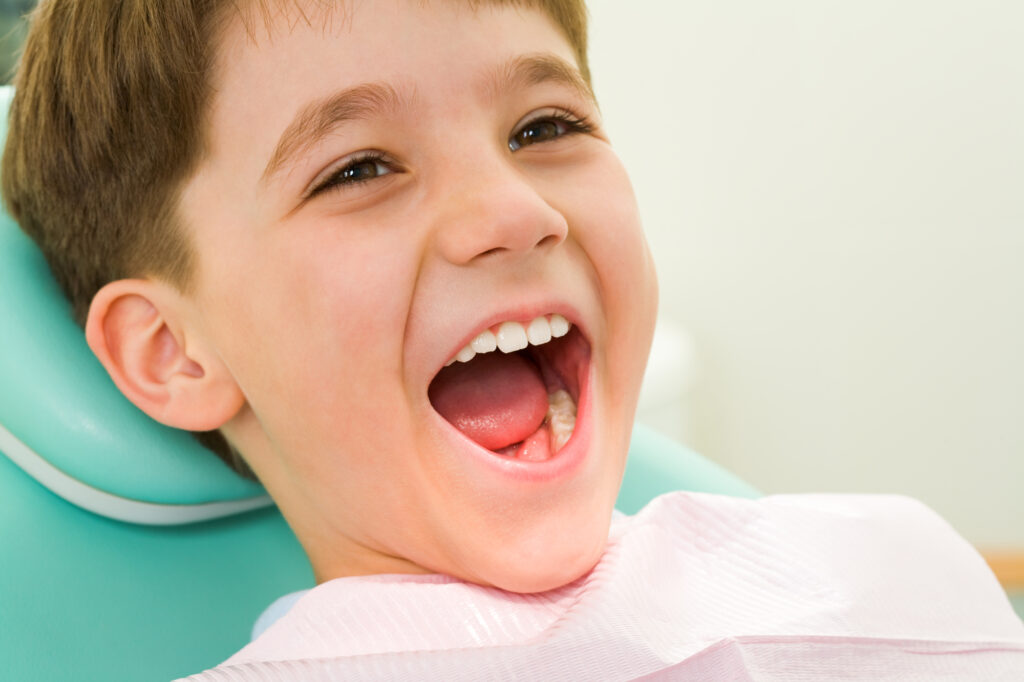What’s The Best Way to Floss
We all know we should floss, but it can be tough. Part of this is because flossing can feel like an extra task in an already busy day, but it...

As a parent, your child’s dental health is undoubtedly a top priority. But, of course, you also worry about their comfort and certainly don’t want them to experience unnecessary pain.
Which is why we commonly get asked the obvious question about filling a cavity in a child’s baby tooth: is it really necessary?
Baby teeth, also called primary teeth, are not just a throw-away set of tiny chompers. You might be surprised to learn that they actually play an important role in your child’s development. Having properly sized and spaced teeth aids in speech development and proper eating. In addition, primary teeth help guide the permanent tooth into the correct position in the mouth.
Cavities are decay that occurs in the tooth. They can be caused by insufficient oral hygiene, sugary diets, and weak tooth enamel. While enamel issues can be genetic or caused by hard-to-control factors like lower birth weight, it is no surprise that young children are susceptible to less-than-stellar brushing habits and questionable dietary choices.
Cavities are certainly not uncommon in children of all ages. But if their teeth are going to fall out anyway, do they really need to have cavities filled? The answer is, typically, yes. Failing to treat cavities in baby teeth can lead to more serious complications, including pain, infections, difficulty eating, and even tooth loss. Additionally, untreated cavities in primary teeth can affect the development of permanent teeth.
But why not just wait until the tooth falls out on its own? While this may seem logical, it is not the best choice. Cavities can progress quickly. Cavity-related tooth pain can appear seemingly overnight and can be quite severe. Even minor pain can affect eating and oral hygiene habits, as well as sleep and learning.
Additionally, a small infection can spread, affecting neighboring teeth and potentially leading to tooth loss. Since baby teeth act as fillers and guides for permanent teeth, early loss can lead to misalignment as well as other issues with the eruption of permanent teeth.
Furthermore, children vary tremendously when it comes to loose-tooth timelines. Since you don’t really know how long it will take for a particular tooth to become loose and fall out, it is best to treat the cavity as soon as possible.
Remember, treating a minor cavity right away will mean faster, better outcomes. It also means the potential to avoid the need for more complex (and potentially more painful) treatments in the future.
We get it. You are probably worried about how your child will handle getting a filling. Traditionally, fillings require drilling, and due to the discomfort, needles are also necessary to deliver local anesthetic. Unfortunately, traditional fillings can be loud, uncomfortable, and scary for children.
This is one of the reasons laser dentistry is gaining in popularity, especially for pediatric patients. Laser dentistry is pain-free and often does not require shots of nonvaccine or other anesthetic. As an added bonus, lasers don’t produce the noise and vibrations associated with traditional drilling methods. This means a much calmer, positive experience for young dental patients.
And laser dentistry isn’t limited to just cavity treatment. It can also effectively address gum issues, tongue ties, and other pediatric (and adult!) dental concerns. Another benefit? The precision of laser technology allows for faster healing and reduced risk of complications.
When it comes to your child’s health, you want the best. Consider a dentist who specializes in pediatric laser dentistry. Opting for laser treatments when possible has the potential to make a big difference in your child’s experience and could help set them up for a lifetime of better oral health.
Contact us today to schedule an appointment and experience the benefits of pain-free dental treatments with laser dentistry.